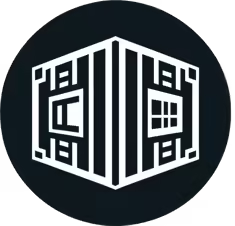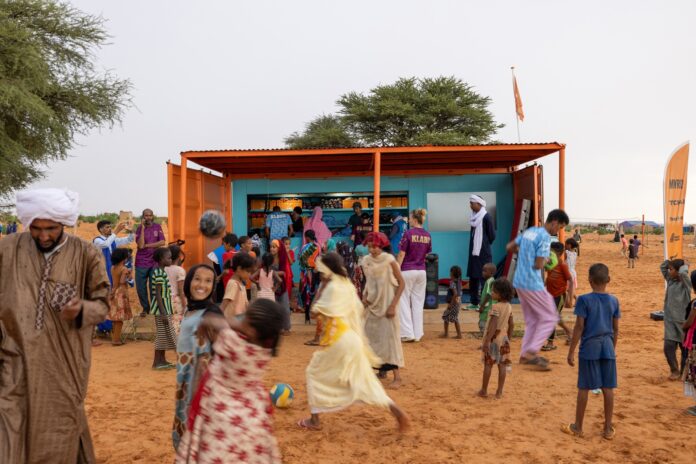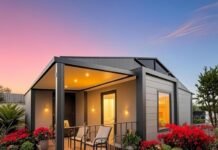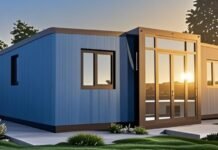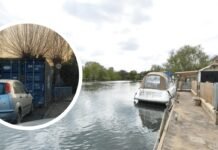MVRDV’s Modular Clubhouse: A Beacon of Hope for Refugees in the Azraq Camp
Introduction
In the heart of the Azraq refugee camp in Jordan, Dutch architecture firm MVRDV has unveiled an innovative solution to the challenges faced by displaced individuals. With approximately 41,000 refugees from the Syrian conflict calling Azraq home, MVRDV has designed a modular clubhouse that aims to uplift spirits and foster community through sports and recreational activities. This thoughtful initiative highlights the intersection of functionality, sustainability, and compassion.
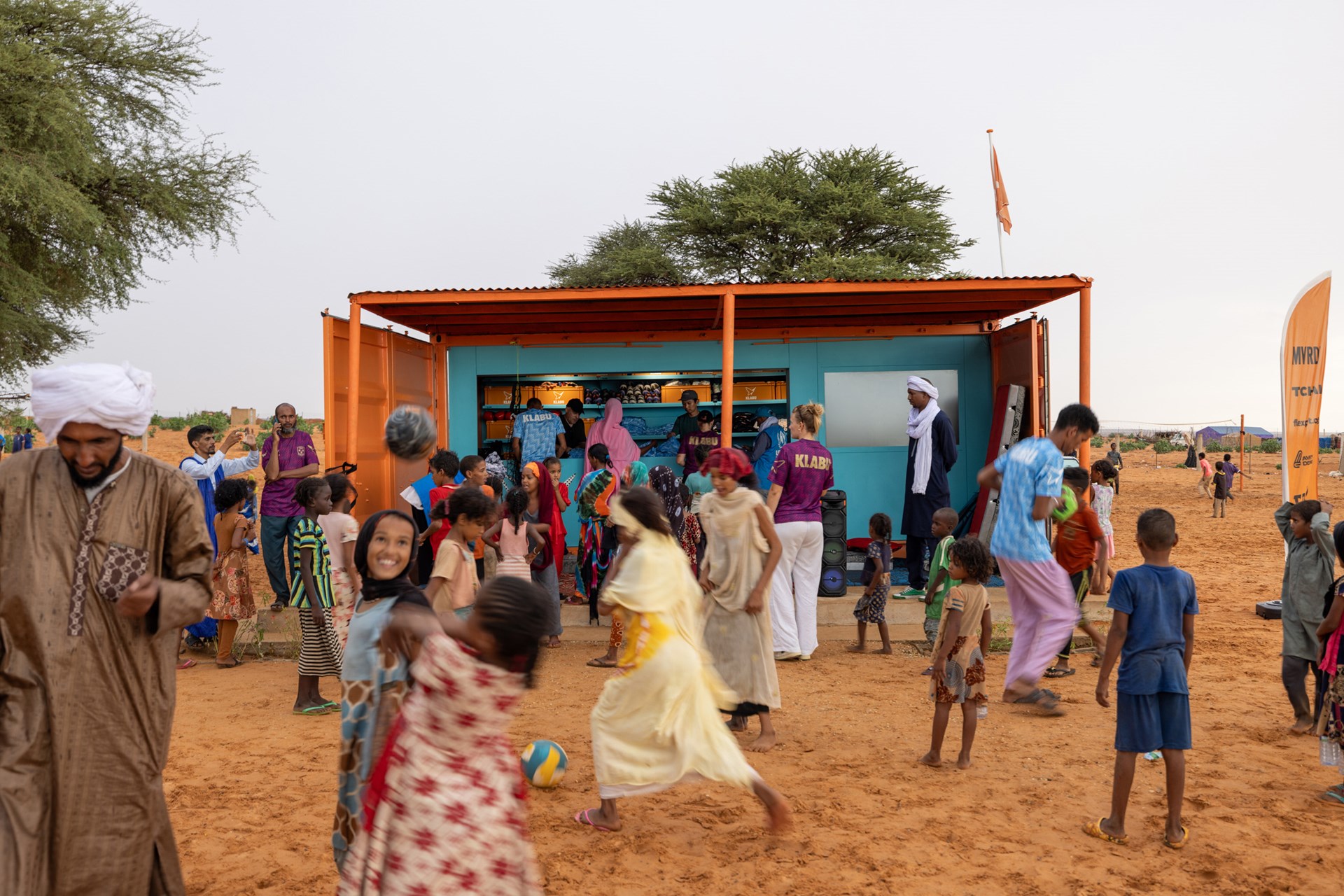
A Modular Design
The clubhouse is ingeniously constructed from a standard 20-foot shipping container, a symbol of mobility and transience. This container is not just a physical structure; it encompasses a world of possibilities for those who may have lost everything. Inside, it is outfitted with sports equipment to promote physical activity and well-being, alongside modern amenities such as a television and Wi-Fi access, connecting inhabitants to the outside world.
The design incorporates an eye-catching orange exterior, contrasting with a serene sky-blue interior. To ensure a comfortable and inviting atmosphere, the container features windows and extra doors that open up to the surrounding environment. Additionally, the clubhouse is equipped with roof-mounted solar panels, allowing for light, phone charging, and internet access—essential tools for communication and connection in today’s digital age.
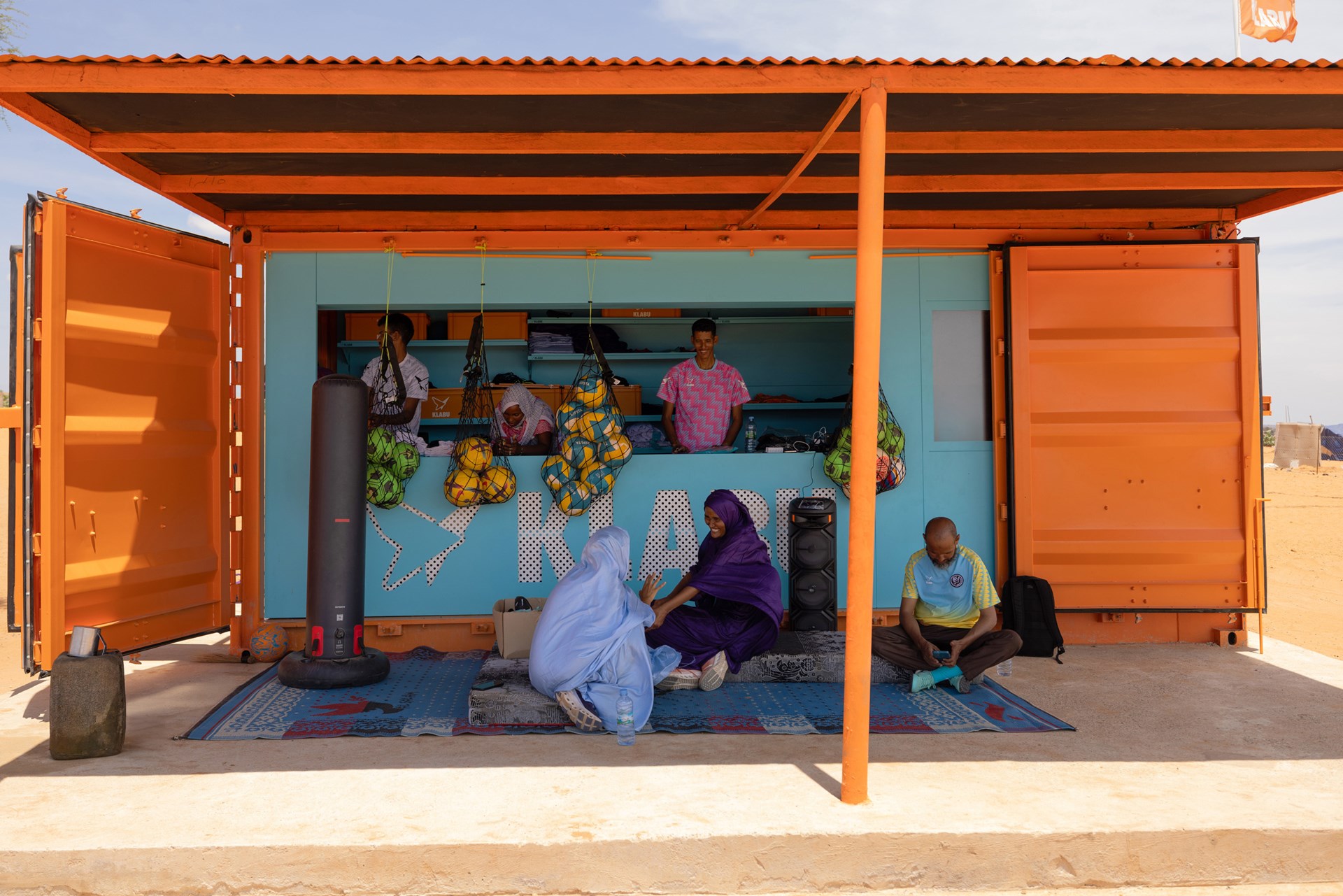
Building on Previous Success
This version of the clubhouse marks the third iteration of MVRDV’s design, showcasing a continuous evolution in response to the needs of refugee communities. Previous clubhouses were successfully installed in Boa Vista, Brazil, for Venezuelan refugees, and the M’bera camp in Mauritania, which hosts around 100,000 Malian refugees. Each project not only provided shelter but also essential communal space, impacting the lives of countless individuals.
According to Jan van Hövell, founder of KLABU—an organization dedicated to providing sports and social opportunities for refugees—this collaborative effort is a powerful reminder of what can be achieved when design intersects with purpose. He stated, “Creating opportunities for people to play, learn, and dream together, no matter where they are,” encapsulates the mission behind this initiative.
A Rewarding Challenge
MVRDV’s director, Gideon Maasland, reflects on the underlying philosophy of the project: “Sometimes the most powerful design comes from the simplest concept.” The transformative potential of the shipping container—a commonplace object—has been harnessed to create a vibrant, multifunctional space tailored to meet the diverse needs of refugees. This philosophy emphasizes that even the most ordinary materials can yield extraordinary results when guided by a compassionate vision.
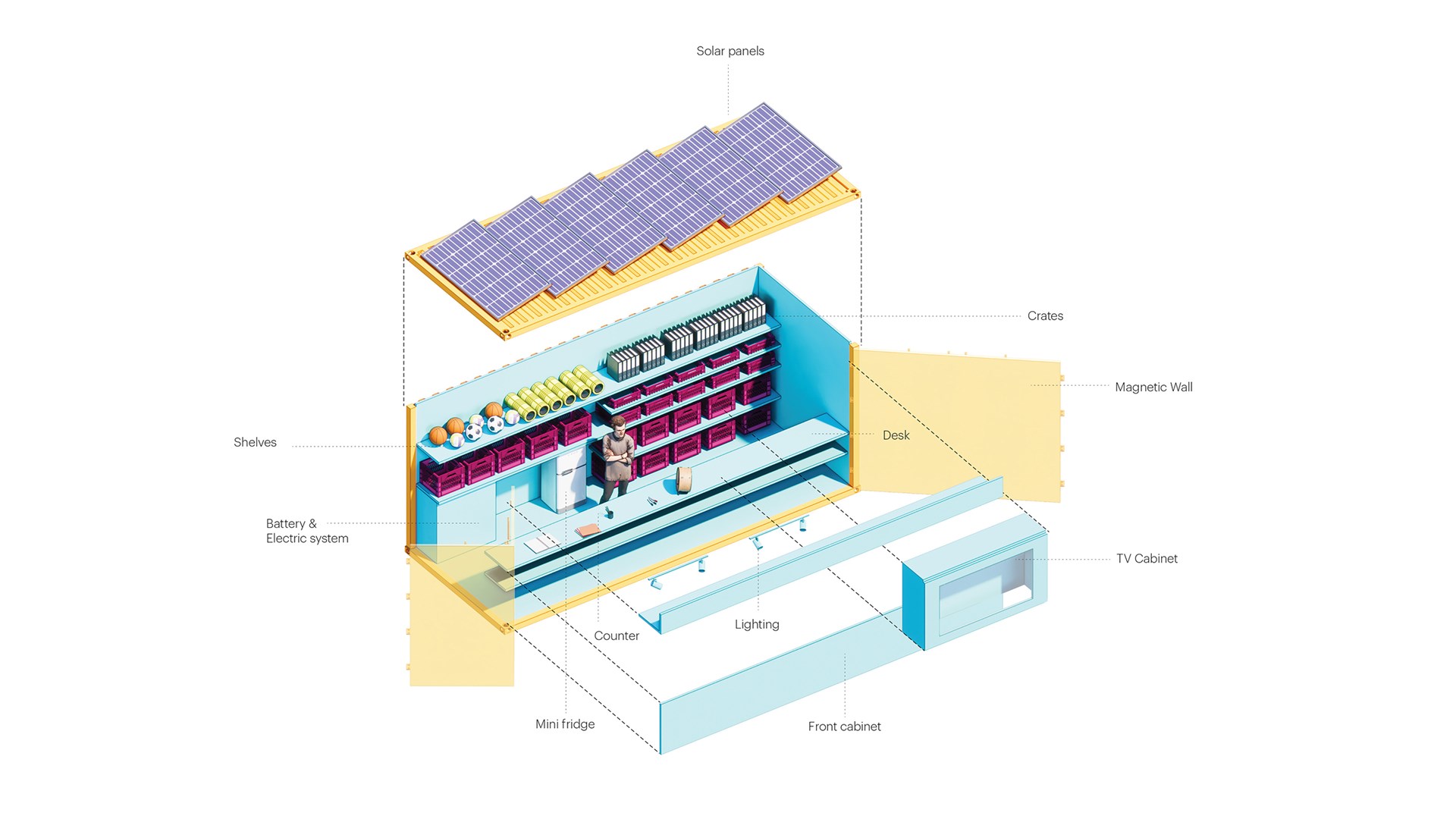
Conclusion
MVRDV’s clubhouse in the Azraq camp stands as a beacon of hope and resilience amidst the challenges facing displaced communities. By providing a space for sports, learning, and connection, this innovative design not only addresses immediate needs but also fosters a sense of belonging and purpose among refugees. As the world continues to grapple with the complexities of displacement, initiatives like this remind us of the power of design and collaboration in transforming lives.
Final Thoughts
This project is more than just a clubhouse; it is an embodiment of humanity’s capacity to respond to crisis with creativity and empathy. As we look towards the future, it serves as an inspiring example of how architecture can contribute meaningfully to the lives of those in dire need.
